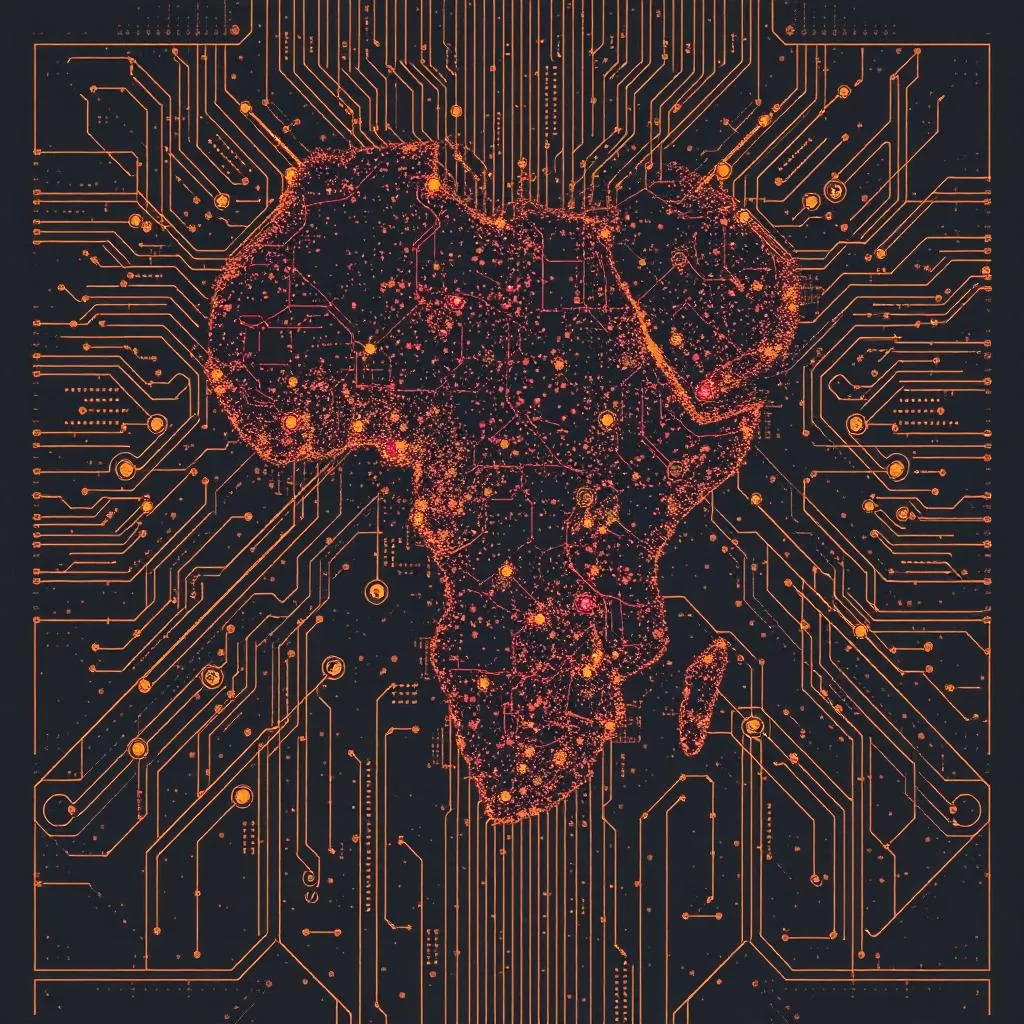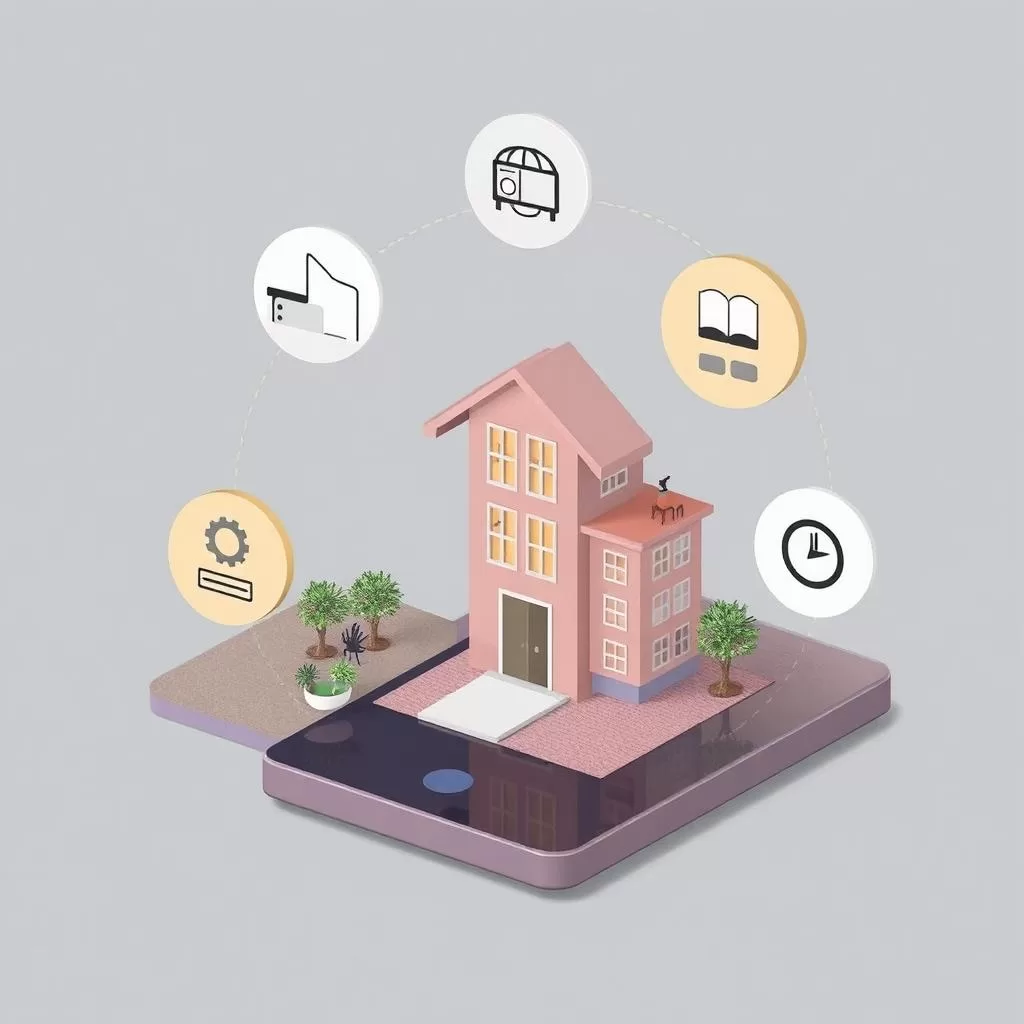Impact of AI on Africa: It’s Economy and Industries
Artificial Intelligence (AI) is rapidly transforming Africa’s economy, creating new job opportunities, improving healthcare, enhancing agriculture, and driving innovation across multiple industries. With AI adoption growing, experts predict that AI could contribute up to $1.2 trillion to Africa’s economy by 2030. Therefore, the Impact of AI on Africa can be felt in all spheres, starting from its economy and industries.
But how exactly is AI impacting Africa, and what does the future hold?
What You’ll Learn in This Article:
- Challenges faced and the future of AI adoption in Africa
- How AI is transforming key industries in Africa
- The role of AI in economic growth and job creation
Impact of AI in Healthcare in Africa: Transforming Medical Services
Africa faces major healthcare challenges, including a shortage of doctors and limited access to medical facilities. AI is helping solve these problems through:
- Disease Prediction & Outbreak Tracking: AI analyzes data to predict disease outbreaks, enabling governments to take preventive action and respond more effectively.
- AI-Powered Diagnostics: AI tools analyze medical images (X-rays, CT scans) to detect diseases faster than human doctors.
- Chatbots & Virtual Health Assistants: AI chatbots help diagnose common illnesses and provide medical advice, improving accessibility to healthcare.
💡 For example, In Kenya, AI-powered mobile apps like Ada Health allow users to get instant health assessments via their smartphones.
🔗 Related: Questions on Healthtech you need to ask.
AI in Agriculture: Boosting Food Production
Agriculture employs over 60% of Africa’s population, but farmers face challenges like low crop yields, climate change, and pests. AI is improving agriculture through:
- Climate Prediction: AI helps predict droughts and rainfall patterns, enabling farmers to plan more effectively and adapt to changing conditions.
- Smart Farming & Precision Agriculture: AI analyzes soil data to help farmers plant crops at the right time and maximize yields.
- AI-Powered Pest & Disease Detection: Farmers can use AI apps to scan crops and detect diseases early, reducing crop loss.
💡 For example, in Nigeria, Hello Tractor uses AI to connect farmers with tractor services, improving efficiency and reducing costs.
Impact of AI in Finance & Fintech across Africa: Enhancing Digital Payments
Africa is experiencing a fintech revolution, with AI improving financial services through:
- AI Chatbots for Banking: Banks and fintech startups use AI chatbots to answer customer questions and process transactions, improving customer service and efficiency.
- Fraud Detection & Risk Analysis: AI helps detect fraudulent transactions in mobile banking and crypto platforms, enhancing security.
- Automated Loan Approvals: AI-powered fintech platforms analyze credit scores and offer instant loans to users, streamlining the lending process.
💡 For example, Flutterwave and Paystack use AI to detect fraud in online transactions, making digital payments safer.
Impact of AI in Education across Africa: Improving Learning & Access to Knowledge
Education in Africa faces challenges such as limited schools, a lack of teachers, and low student engagement. AI is helping by:
- Language Translation AI: AI tools help translate lessons into local languages, making education more accessible to a wider range of students.
- AI-Powered Learning Apps: Platforms like Google’s Bard AI and ChatGPT provide personalized learning experiences, catering to individual student needs.
- Virtual Tutors & AI Chatbots: AI tutors assist students with homework and exam preparation, offering real-time support.
💡 For example, in South Africa, the Siyavula app uses AI to provide interactive math and science lessons to students.
AI in Business & Job Market: Creating New Opportunities
AI is not only transforming businesses but also creating new job opportunities across Africa.
- New AI-Based Job Roles: Africa is seeing growing demand for AI-related jobs like data scientists, AI engineers, and machine learning specialists, fostering new career paths in the tech industry.
- AI-Powered Customer Support: Companies use AI chatbots to handle customer queries 24/7, improving efficiency and customer satisfaction.
- Automated Data Analysis: AI helps businesses analyze big data and make better decisions, driving smarter strategies.
💡 For example, Andela, a Nigerian tech company, trains African developers in AI and connects them to global tech jobs.
AI in Security & Smart Cities: Enhancing Public Safety
AI is improving security and urban planning across African cities:
- Cybersecurity & AI: AI detects cyber threats and protects businesses from hacking attacks, ensuring safer digital environments.
- Facial Recognition & Surveillance: AI-powered cameras help identify criminals and missing persons, enhancing public safety.
- AI-Driven Traffic Management: Smart traffic systems reduce road congestion and accidents, improving urban mobility.
💡 For example, in Rwanda, AI-powered CCTV cameras help monitor city traffic and detect security threats in real time.
Challenges of AI Adoption in Africa
Despite AI’s potential, several challenges slow down its adoption in Africa:
Ethical & Privacy Concerns:
AI-powered surveillance systems raise significant concerns. Issues such as data privacy and misuse are a major worry in many regions.
Limited AI Skills & Talent:
There are not enough AI professionals to develop and deploy AI solutions. This shortage limits the continent’s growth in AI.
High Cost of AI Implementation:
AI technology is expensive. As a result, it is difficult for small businesses to afford and adopt these solutions.
Lack of Internet & Infrastructure:
Many rural areas still lack stable internet connections. This makes it challenging to access and use AI-powered services effectively.
💡 Solution: Governments and tech companies should invest in AI education, affordable technology, and better regulations.
The Future of AI in Africa
AI adoption in Africa is expected to grow significantly, and several key trends are driving this growth:
Growth in AI Job Market: Consequently, as AI adoption increases, more Africans will receive training, creating more job opportunities in AI-related fields.
More AI Startups & Innovations: As a result, AI-powered businesses will continue to emerge, fostering innovation across various sectors.
AI in Local Languages: In addition, AI will be developed to understand and process African languages, making it more accessible to local communities.
Affordable AI-Powered Healthcare & Education:
Furthermore, AI will provide cost-effective solutions, improving access to essential healthcare and education services across the continent.
💡 For example, Google’s AI Research Center in Ghana is working on African language processing AI models.
Conclusion: AI is Africa’s Next Big Revolution
Artificial Intelligence is driving economic growth, transforming industries, and creating new opportunities across Africa. While challenges remain, AI has the potential to unlock billions of dollars in value and improve lives.
Key Takeaways:
Several challenges must be addressed:
Notably, issues like cost, skills shortage, and infrastructure gaps need to be resolved for wider AI adoption.
AI is revolutionizing key sectors:
Specifically, healthcare, agriculture, finance, and education are experiencing significant advancements due to AI.
AI startups are driving job creation:
As a result, the rise of AI-powered businesses is opening up new job opportunities across various industries.
Do you have an AI related project in mind? Contact Tekniali Tech today for your next AI project.
💬 Do you think AI will replace traditional jobs in Africa? Share your thoughts in the comments!
Share this content:







Post Comment